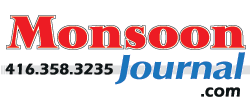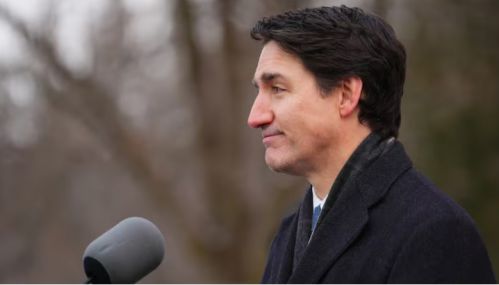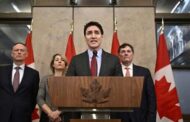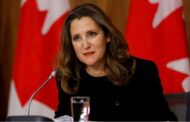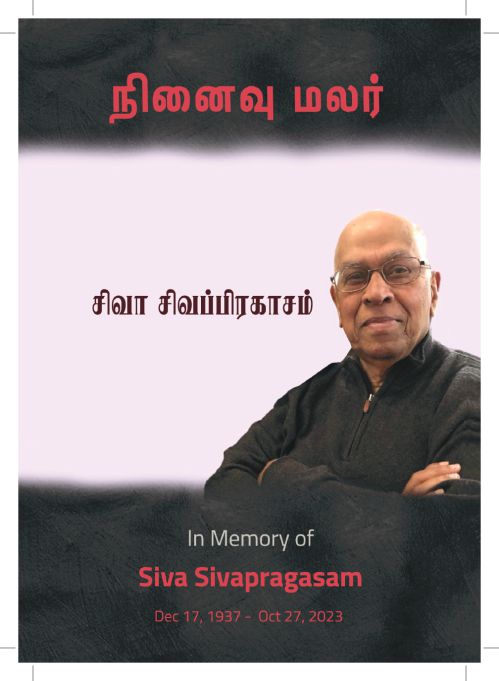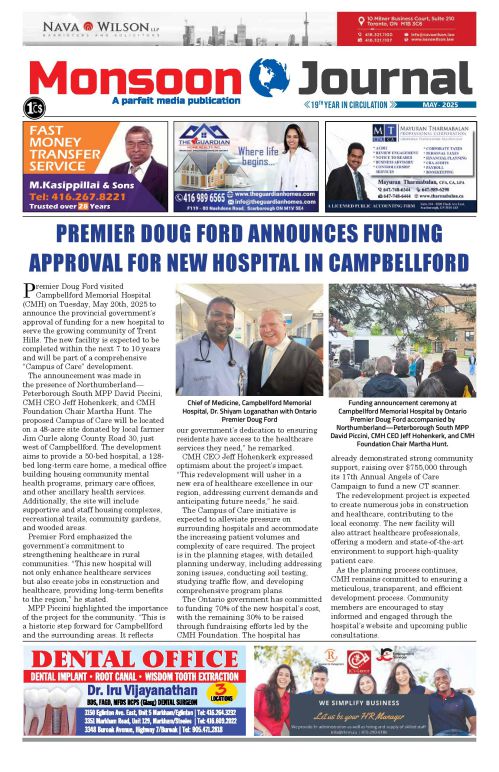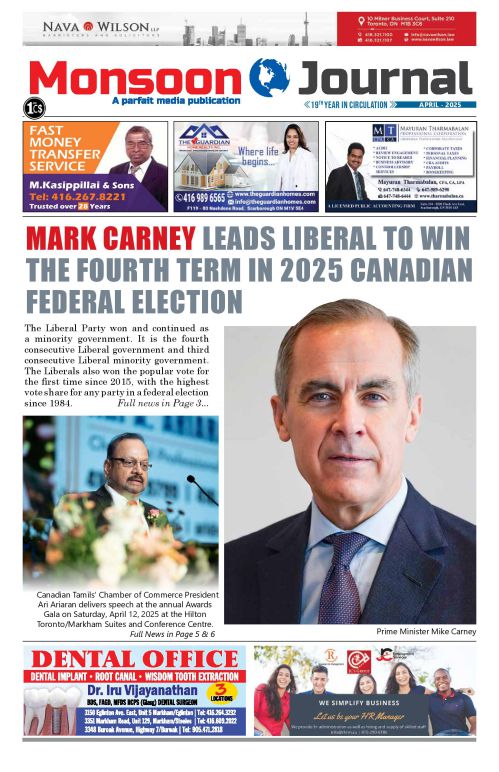By Harrish Thirukumaran
Trudeau resigns and new Liberal leadership race
“This country deserves a real choice in the next election, and it’s become clear to me that if I’m having to fight internal battles, I cannot be the best option in that election.” “I intend to resign as party leader, as prime minister.”
Prime Minister Justin Trudeau delivered a somber outlook, as he announced to reporters on January 6, 2025, that he is resigning as leader of the Liberal Party of Canada and Prime Minister. Both decisions will take place after the results of a leadership race. It is an explosive political start to the New Year.
This emerged nearly three weeks after his finance minister, Chrystia Freeland abruptly resigned from her post over Trudeau’s approach to President-elect Donald Trump’s threat of tariffs. This day marks a rough end of a nine-yearlong political run that includes the COVID-19 pandemic response as well as climate change policy. It surprisingly concludes a story from two previous issues of the Monsoon on the recent situation. Additionally, Trudeau has requested the Governor General, Mary Simon to prorogue parliament until March 24.
In terms of a leadership election within the Liberal Party of Canada, Trudeau called on the president of the Liberal Party of Canada to start a “robust” and “nationwide” process to find the next leader. Some front running contenders already being reported include his former finance minister and deputy prime minister, Chrystia Freeland and former Bank of Canada governor, Mark Carney. The Liberal leadership race is set for March 9, with candidates having until January 23 to declare their entry to participate. Reports now indicate that Carney could be announcing his candidacy by the week of January 13 along with Freeland. As part of the rules for this contest, both Canadian citizens and permanent residents are eligible to vote in the contest for the leader.
Diving into the latest on Canadian politics
There is a lot of noise ramping up in the Canadian political landscape. As Harold Wilson, former UK prime minister, once noted, a week in politics is a long time. Indeed, that it is, and we are seeing it play out in real time here in Canada so this piece intends to ensure you can grasp fully its implications.
To start, Canadians should expect the upcoming election season even sooner than the scheduled October date. Semra Sevi, an assistant professor of political science at the University of Toronto, told NPR that “An election could be called as early as late March 2025.”
Pierre Pollievre, Canada’s next possible prime minister
According to CBC’s Poll Tracker, the Conservative Party of Canada leads by 24 points compared to the ruling Liberal Party. Currently led by Pierre Pollievre, he has become widely known for his attack dog style of opposition politics in the House of Commons. He has called Trudeau a “wacko” in the House as well as his ministers, “disastrous”. These have blurred the rules of Canadian parliamentary debate along the way.
His biggest message to appeal to the voters: Do away with the “grandiosity” and “utopian wokeism” that he believes represents Trudeau, in favour of the “the things that are grand and great about the common people”.
This style has and continues to resonate with the voter base, focusing on issues such as cost of living in terms of housing costs and inflation as well as immigration.
While Canadians have been open to the opposition leader’s message as a change from Trudeau’s brand of progressive politics and favour the Conservatives, just over half of them hold an unfavourable opinion of him, according to the latest polls released from the Angus Reid Institute.
One sticking point is the carbon tax. Pollievre has mainly criticized Trudeau for his policy approach to climate change. His government’s carbon tax policy, he argues, has caused a great deal of financial burden on Canadians. He even asserts that this next election will be about the carbon tax, despite the recent rumblings emerging about the Canada-US relationship due to President-elect Donald Trump’s threat of tariffs of 25% on Canadian goods and services.
Today’s issues:
Carbon tax
Despite all the political sloganeering, there are facts that need to be noted to assist the voters like you. For example, the carbon tax has had a relatively modest impact on inflation according to a study at the University of Calgary, examining its effects from 2019 to 2024.
Inflation
Next, it is worth noting that the Bank of Canada in a December 2024 press release, stated that its monetary policy has been decisive in lowering inflation recently to its 2% target. However, it could not control external factors like global supply chain strains. Furthermore, it required Canadian families and businesses taking on higher interest payments on loans like mortgages.
That paired with higher prices on some essential goods like $8 lettuce could have together contributed to higher disapproval in Trudeau’s government, as the former PM himself noted to CNN in a recent interview. The feelings around inflation did not entirely match up with the hard facts on the matter in terms of numbers compared with other countries such as US and Spain. In those sorts of situations, Trudeau points out, someone has to take the blame, which are typically the incumbents.
Furthermore, he went onto say in that same interview that the recent statements by President-elect Trump on Canada being a ‘51st state’ could be a distraction on the expensive impacts that his 25% tariffs would have on people and businesses on both sides of the border. Trump even broadly proclaimed that Canada would be annexed by ‘economic force’.
On the tariff issue, Poilievre said his party, if given the chance to govern would “stand up and we will state clearly that Canada is a sovereign and independent country, that we will protect our integrity as a nation through strength.”
Immigration:
The large numbers of immigrants that were being admitted under Trudeau’s government, a claimed boost to a post-COVID economy have put a strain on housing affordability and inflation as some have been voicing disapproval of his government.
Conclusion:
In going through the news cycle and recent commentary on these issues, it important to note that multiple factors and dynamics have played a role in Trudeau’s ultimate decision to resign, and not a single issue per se.
However, it is safe to note that the cost of living, housing, immigration and climate change will be some of the most pressing issues that are top of mind for the voters in this upcoming election.
The developments occurring in Canadian politics today are incredibly fast paced right now. As mentioned earlier, a week is a long time in politics. This idea is magnified further in today’s world of social media. In that sense, I would suggest that readers stay up to date on these developments through reputable sources of information such as CBC, Toronto Star, or the New York Times as well as the official websites of the contesting parties. Observe from a place of curiosity and critical thinking to understand how Canada can move forward as a prosperous country for all.
